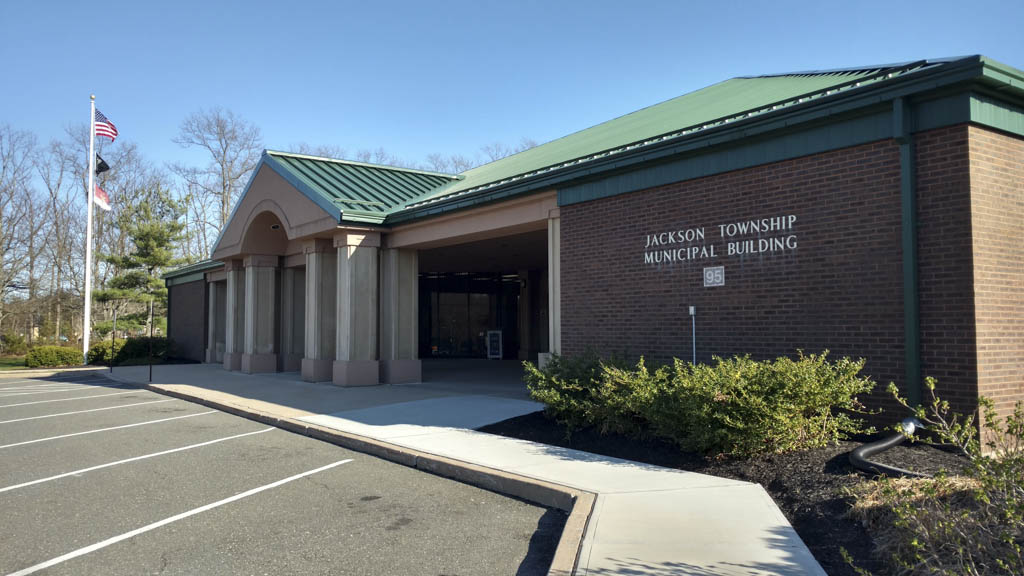JACKSON- The Jackson Zoning Board of Adjustment has denied an applicant’s request to construct a wireless telecommunications facility in a residential zone on West Veterans Highway.
T-Mobile Northeast LLC/Eco Site LLC/Pyramid Network SVS LLC sought a use variance in order to construct a 100-foot-tall monopole in a zone in which such a structure is not permitted.
The applicant’s representatives testified the tower was needed to close a gap in the company’s coverage area.
At the conclusion of testimony on Feb. 21, a motion was made to deny the use variance. The motion was approved, 5-2, with Scott Najarian, Peter Maher, Kathryn McIlhinney, Alexander Sauickie III and Vice Chairman Sheldon Hofstein voting yes. Chairman Steve Constanzo and board member Carl Book Jr. voted no.
Attorney David Kenny, radio frequency engineer Adam Feehan, engineer Jeremy McKeon, real estate appraiser Mark Tinder and site acquisition specialist Gino Sainte-Rose represented T-Mobile Northeast LLC/Eco Site LLC/Pyramid Network SVS LLC.
McIlhinney said she wanted to hear testimony about what had been referred to as a “significant gap in coverage.” She said she had not heard testimony regarding that issue.
Kenny said Feehan presented a report showing the gap in coverage and used tested methodology to define the gap area.
“The size of the gap in coverage is significant and can be shown in the fact that the applicant is (proposing) two wireless telecommunications facilities – one on West Veterans Highway and one on Cassville Road – that fill the same gap in coverage. That is not a normal procedure unless it is an actual significant size gap in coverage, ” the attorney said.
“The only testimony that is credible before this board right now is from the applicant’s radio frequency engineer who says there is a significant gap in coverage and that this (proposed) facility is centrally located enough to fill the identified gap in coverage,” Kenny said.
He told McIlhinney the gap in the coverage area is essentially made up of multiple dead spots in coverage and affects about 3,000 people.
During public comment, Michael Franceschi voiced concern about the buffer between his property and the proposed telecommunications facility on West Veterans Highway.
“I want a buffer, I want (the buffer) off my fence line toward his property, I want a 10-foot buffer and tell me (the applicant) could get a truck by there because (it) would be hitting trees. There is no room, there is 20-something feet between his fence line and mine,” Franceschi said.
“The trees are the property line, I put every one up, over 100 trees going down that property line. I planted the trees, (they have) cut down 1,000 trees already. OK, it has a lot to do with my property and (this application) is affecting me.
“If you get a fire back there and the tower falls down, the fire department is not going to be able to put it out; there is not adequate water. You get a fire back there, you got a disaster and if that (tower) tumbles over you got another disaster,” Franceschi said.
During comments from board members, Book said he did not believe the application would substantially impact Jackson’s zoning ordinance or master plan.
“We obviously have the neighbors who are going to be impacted by this (monopole), but I have to admit it was very difficult to synthesize out what the true negative impact is upon (the Franceschi) property.
“I understand it is a highly emotional issue here, I understand (Franceschi) spent a lot of money on that lot and (he) does not really want to see this (monopole). Is there an effect on the neighboring property? Yes, I am going to give them that there is an effect, (but) is it a substantial effect? Is it enough to turn down this application?” Book said.
Maher said he did not believe the applicant proved there would not be a negative impact on surrounding residential properties.
Najarian said he believed there were other locations that would not produce a negative impact and he made the motion to deny the application.
Book added that “this is the least intrusive location” and said he did not believe there was a substantial detriment to the public.
Constanzo agreed with Book’s assessment of the situation.
On roll call, Costanzo and Book voted no on the motion to deny the application, but yes votes from Najarian, Maher, McIlhinney, Sauickie and Hofstein passed the motion and denied the applicant the requested use variance.

